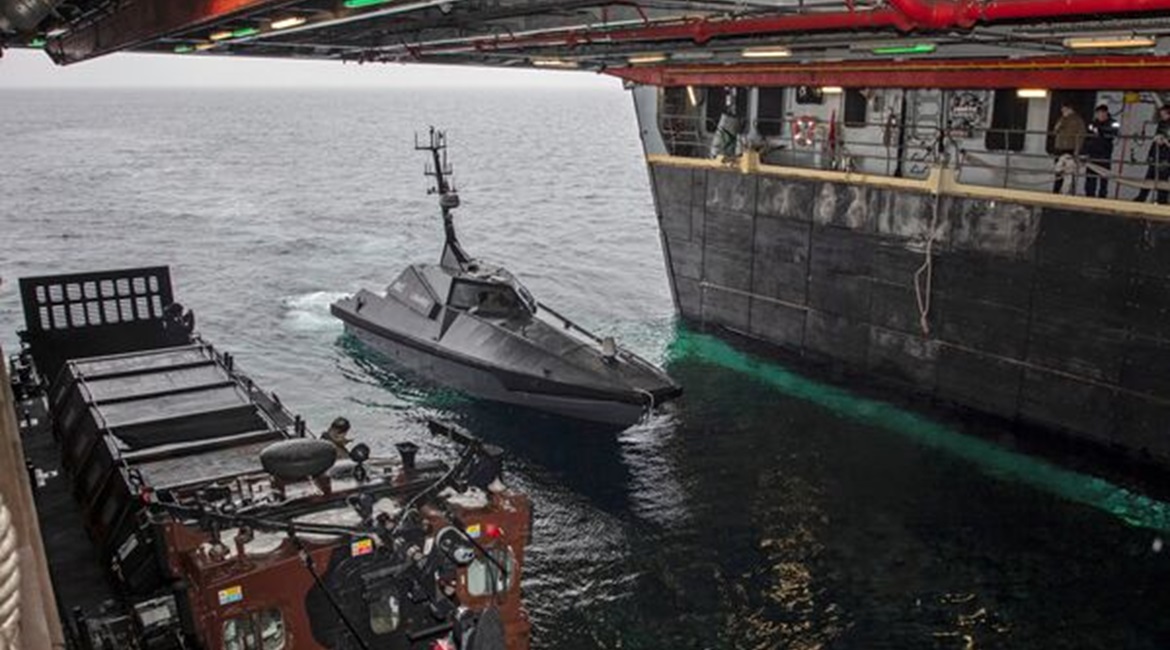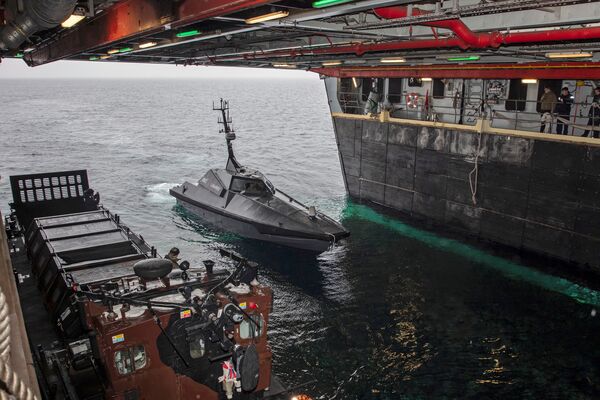
The UK Royal Navy (RN) is shaping up to take on a new threat: climate change. However, do those two subjects sit well in the same sentence? In the context of ‘Global Britain' and the implied requirement to send its diesel burning ships to the new geo-strategic target of the Indo-Pacific region, the RN's reliance on fossil fuels would appear unlikely to diminish in the coming years. It has a widespread estate and an ambitious shipbuilding programme, both of which will continue to demand a high use of natural resources.

The Royal Navy is using autonomous vehicles as part of its drive to reduce fuel consumption. (UK Ministry of Defence 2021)
While the RN has its particular challenges, it is not alone. In modern militaries there is growing recognition that not only will climate change alter the global security and operating environments but also that there is an increasing expectation for armed forces to play their part in reducing its impact.
In a similar timeframe to the Pentagon establishing a ‘Climate Working Group', the UK Ministry of Defence (MoD) published its ‘Climate Change and Sustainability Strategic Approach' document on 30 March, laying out the UK military's response to the challenges of climate change out to 2050.
The challenges are clear. In its foreword, Lieutenant General Richard Nugee, who led the review, wrote, “The threats of our modern world, made worse by rising seas, extreme weather, and creeping desertification, will almost certainly lead to more conflict.” He stated that it is not only the right thing to do but also necessary in light of the government's legal obligation to achieve net zero carbon emissions by 2050.
Looking to read the full article?
Gain unlimited access to Janes news and more...


